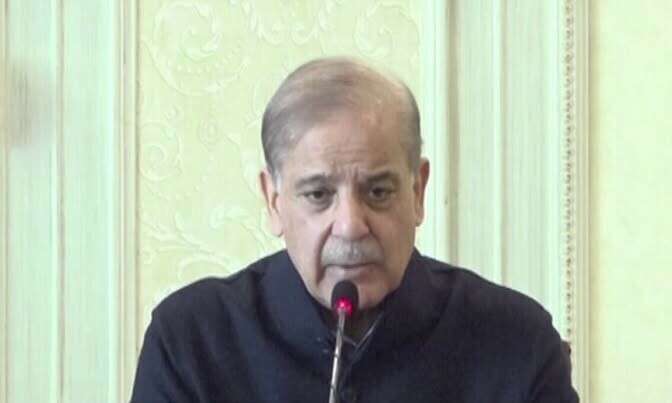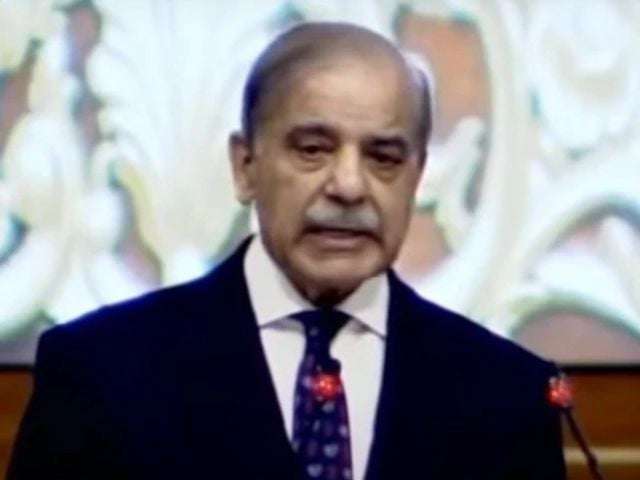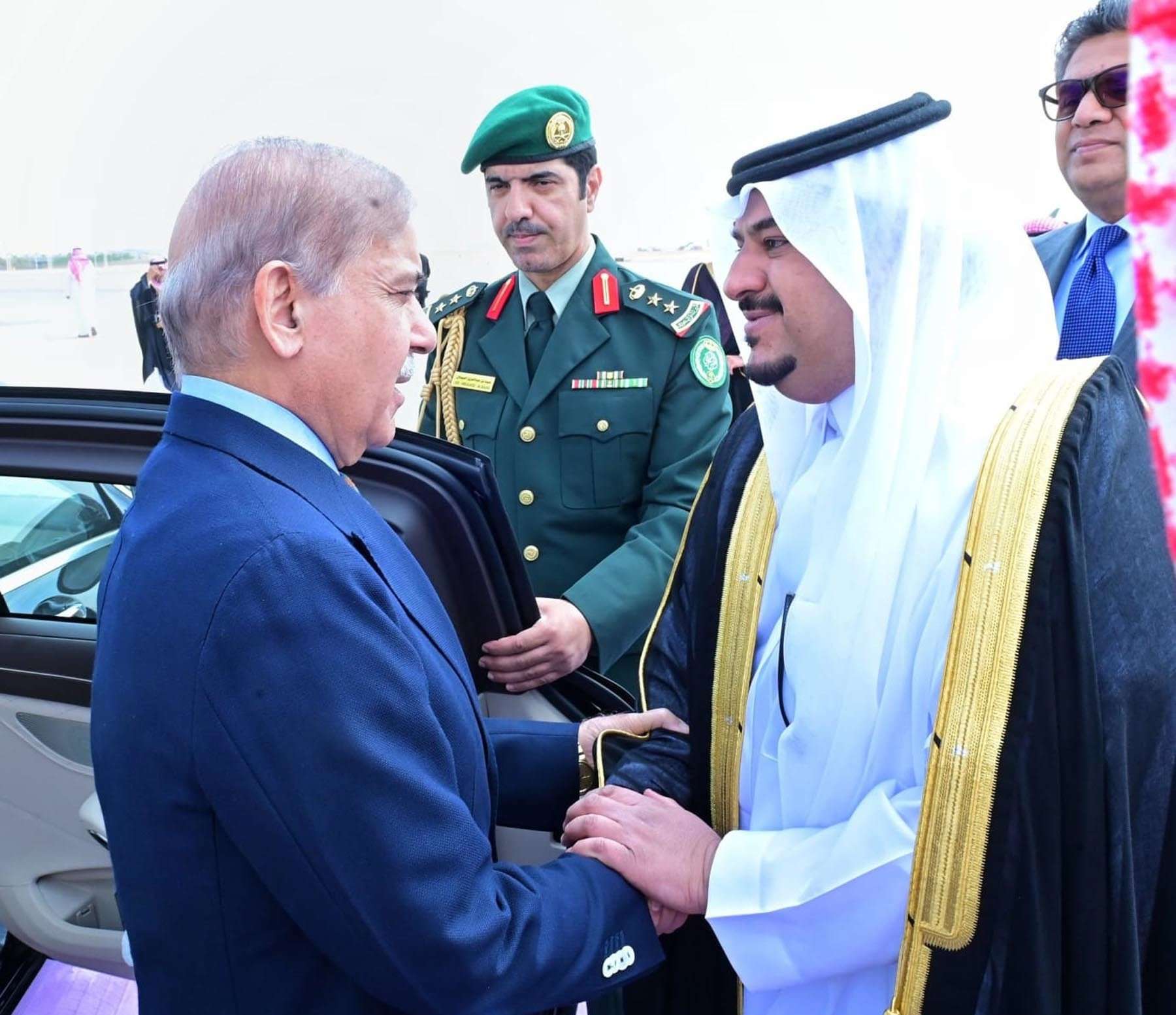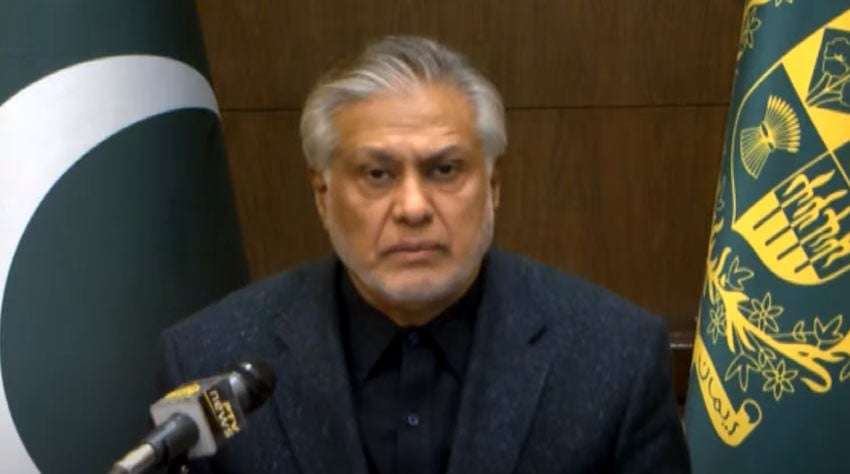Prime Minister Shehbaz Sharif recently announced that the government is prepared to form a parliamentary committee to continue discussions with the Pakistan Tehreek-e-Insaf (PTI), offering an alternative to PTI’s demand for a judicial commission to investigate the protests that took place on May 9, 2023, and November 26, 2024.
This announcement comes after more than a year of heightened tensions between the government and PTI, as both sides struggled to find common ground despite initial negotiations. The offer to form a parliamentary committee is seen as a new attempt to restart the stalled dialogue process, as political temperatures continue to rise across the country. The discussions, which began in late December, hit roadblocks over unresolved issues, including the formation of judicial commissions and the release of PTI prisoners.
Stalled Dialogue and Tensions Between Government and PTI
The Initial Negotiation Efforts
In late December 2024, after a prolonged period of political tension and unrest, the government and PTI agreed to engage in talks aimed at de-escalating the situation. However, despite efforts to build bridges, the dialogue faltered on several critical issues. The PTI, led by Imran Khan, had insisted on the formation of judicial commissions to investigate the protests of May 9, 2023, and November 26, 2024, both of which were marked by violent demonstrations and unrest. PTI’s demand for a judicial inquiry stemmed from their view that these protests were a result of government oppression and injustice.
On the other hand, the government preferred to form a parliamentary committee instead of a judicial commission. This preference led to a standoff that delayed the talks and resulted in the PTI’s decision to boycott the fourth round of negotiations scheduled for January 28, 2025. The PTI’s refusal to participate in the talks was a major setback, as both sides had hoped to resolve their differences through dialogue.
Prime Minister’s Proposal for a Parliamentary Committee
During a cabinet meeting, Prime Minister Shehbaz Sharif reiterated the government’s commitment to continuing the dialogue with PTI. He offered the formation of a parliamentary committee as a way forward, stating, “We are ready to form a House committee. The committee that was formed in 2018 should also complete its probe, and a House committee should be formed to investigate the February 2024 elections to bring the facts to the forefront.” The Prime Minister emphasized that this approach would help bring transparency to the investigation process, while also addressing the concerns of all parties involved.
In his address, the Premier also referenced the previous parliamentary committee formed in 2018, which was intended to probe election rigging allegations. According to Shehbaz Sharif, the PTI government at that time had proposed the formation of a parliamentary committee, which was accepted by the opposition. However, he pointed out that the committee only held one or two meetings and failed to deliver on its promises of a thorough investigation. Sharif’s comments underscore the government’s willingness to use the parliamentary process, rather than judicial commissions, to address concerns related to political protests and electoral integrity.
Call for Dialogue and Collaboration
Prime Minister Shehbaz Sharif also underscored the importance of dialogue, stating, “It takes two to tango. This dialogue should move forward so that the country can progress, instead of bearing more harm due to their violent protests.” His statement highlights the need for both parties to work together in a spirit of collaboration to resolve the ongoing political crisis. The Prime Minister expressed his belief that continued dialogue would benefit Pakistan, as opposed to further escalating tensions through protests and confrontation.
While reiterating the government’s commitment to dialogue, Sharif criticized the PTI for its decision to pull out of negotiations and its failure to attend the scheduled meeting on January 28. He said, “Our members told them that the [government] was ready to present a response in writing, and invited them to come to the table again.” Sharif’s message reflects the government’s readiness to resume talks and find a middle ground, despite the setbacks caused by PTI’s withdrawal.
Historical Context: The 2018 Parliamentary Committee
In his address, the Prime Minister also referred to the parliamentary committee formed in 2018, which was established under the previous PTI government. The committee’s goal was to finalize the terms of reference (ToRs) for investigating allegations of election rigging during the 2018 elections. Shehbaz Sharif recalled that after the 2018 elections, PTI had formed the committee as an alternative to a judicial commission. The opposition, led by Shehbaz Sharif and his party, accepted this proposal and participated in the committee’s formation.
However, Sharif pointed out that the committee’s work was limited, as it only held a few meetings and failed to fulfill its purpose. This historical reference serves as a reminder of the challenges faced by parliamentary committees in the past and the skepticism that exists regarding their ability to resolve contentious issues without a more robust and transparent process.
The PTI’s Position on Judicial Commissions
While the government has extended an olive branch in the form of a parliamentary committee, the PTI’s stance remains firm on its demand for a judicial commission to investigate the protests and other political issues. For PTI, the judicial commission represents a more impartial and transparent method of inquiry, as it would be led by the judiciary rather than political representatives. PTI leaders, including party founder Imran Khan, have expressed concerns over the credibility of parliamentary committees, particularly given their political nature and potential for bias.
The PTI’s decision to withdraw from talks and boycott the scheduled meeting in late January was a direct result of the delay in the formation of judicial commissions. Party leaders argued that the government had not shown enough urgency in addressing the formation of these commissions, which they viewed as essential to holding the government accountable for its actions during the protests of May 9, 2023, and November 26, 2024.
Impact on the Country’s Political Climate
The ongoing standoff between the government and PTI has had significant implications for Pakistan’s political climate. The protests of May 9, 2023, and November 26, 2024, were marked by widespread violence, resulting in loss of life and property damage. These events have deepened the political divide in the country and raised concerns about the future of democratic processes in Pakistan.
The continued tensions between the government and PTI have also hampered efforts to address pressing national issues, including economic challenges, inflation, and governance reforms. The political uncertainty has created a climate of instability, affecting both the public and private sectors, and hindering the government’s ability to implement effective policies.
Looking Ahead: What’s Next for the Dialogue Process?
As the political standoff between the government and PTI continues, there remains hope that both sides can eventually reach a compromise and resume negotiations. While the PTI insists on the formation of a judicial commission, the government has offered an alternative solution in the form of a parliamentary committee. Both sides will need to find common ground if they are to avoid further political upheaval and move toward a more stable and productive future.
The key to moving forward lies in the willingness of both parties to engage in constructive dialogue and focus on the nation’s long-term interests, rather than political point-scoring. Given the historical challenges of parliamentary committees and the current polarization in Pakistan’s political landscape, the coming weeks will be crucial in determining whether these negotiations can yield a positive outcome.
FAQs on Government-PTI Talks and the Parliamentary Committee Proposal
1. Why is the government offering to form a parliamentary committee instead of a judicial commission?
The government prefers a parliamentary committee because it believes that a committee made up of elected representatives can more effectively address political issues and bring transparency, while a judicial commission may be seen as politically biased.
2. What is the PTI’s stance on the formation of a judicial commission?
PTI insists on the formation of a judicial commission, as it views the judiciary as more impartial and capable of conducting a transparent investigation into the protests and political issues surrounding the government.
3. What was the outcome of the 2018 parliamentary committee formed by PTI?
The 2018 parliamentary committee, formed under PTI’s leadership, failed to fulfill its intended purpose. Despite initial hopes for a thorough investigation into election rigging allegations, the committee only held a few meetings and did not bring about significant results.
4. How have the political protests of May 9, 2023, and November 26, 2024, affected Pakistan’s political climate?
The protests have deepened the political divide in Pakistan, led to violence, and created a climate of instability. These events have hampered efforts to address important national issues and have further polarized the political landscape.
5. What is the government’s response to PTI’s boycott of talks?
The government expressed its readiness to continue dialogue by inviting PTI back to the negotiating table and offering to present a written response to their demands, despite PTI’s decision to boycott the fourth round of talks.



